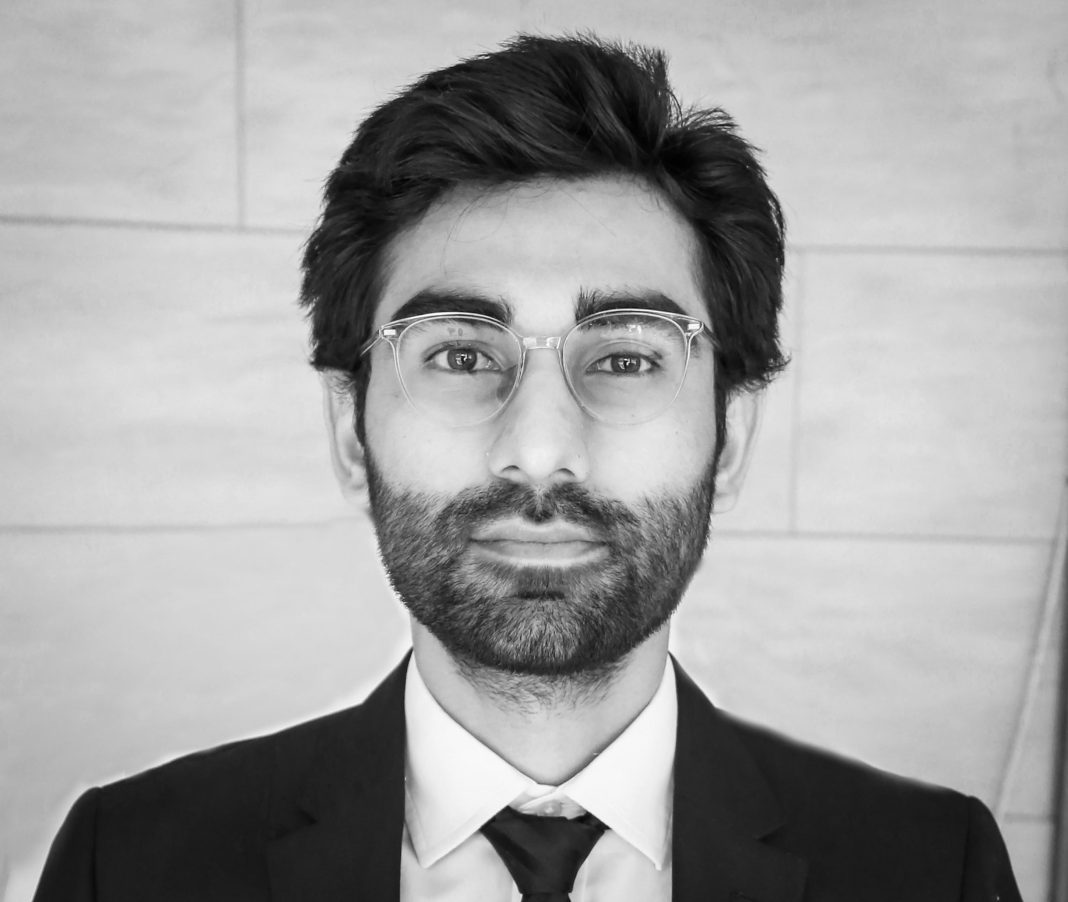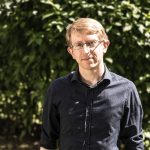The effects of climate change are not equal everywhere. Pakistan is one of the world’s lowest greenhouse gas emitters, but it is dealing with some of the harshest consequences. With projections that it will only get worse, Hamza Amin feels a personal responsibility for preparing his country and its people to cope. Spreading his time between the work of NGO Madinah Foundation in Pakistan and his doctoral thesis in communication science in Austria, we discover how this Young Leader uses his gift for communication to support tangible, on-the-ground transformations.
In 2022, Pakistan experienced devastating floods.
According to Unicef, this “affected 33 million people, while more than 1,700 lives were lost and more than 2.2 million houses damaged or destroyed”. It left 4.5 million people without access to clean, safe water, almost two million of whom were still getting their hydration from unsuitable reservoirs like stagnant ponds six months later.
Alongside the international aid agencies that sprang into action, so too did a Pakistan-based NGO called Madinah Foundation.
Madinah Foundation
The foundations’ mission it is to reduce the nation’s poverty, eliminate food insecurity, improve access to education (especially for women), and address climate change. During the floods, they provided practical help in the form of food, medical supplies, and doctors.
Recognising that the flood was an indication of things to come, Madinah Foundation began to look into long-term solutions that respond to climate change. One of these is the Better Pakistan programme.
Better Pakistan
Based in Faisalabad, Madinah Foundation oversees and funds two universities: the University of Faisalabad and the Green International University.
Not only does this mean the foundation has access to some of the sharpest minds that support its objectives, but it can also prepare them to deal with a more volatile future.
Better Pakistan is a free programme designed to raise students’ awareness of the large-scale impact of climate change in Pakistan. In a very practical sense, it equips young people with valuable skills such as first aid and firefighting.
Next time, they’ll be better prepared when an emergency hits.
And, sadly, there will always be a next time – as worse monsoons in 2023 testify.
According to the country’s government, and corroborated by other sources, “Pakistan, although only contributing 0.9% to global greenhouse gas (GHG) emissions, is one of the most vulnerable countries to the impacts of climate change.”
With the floods, Hamza Amin says, we were “seeing the consequences of climate change right before our eyes”.
However, he believes that many people in Pakistan are still unaware of what climate change really is. Hamza chalks it up to the country’s low literacy rate: 58% overall, and just 46.5% for women. For the poor and uneducated, access to food, schooling, and healthcare are their daily concern; long-term problems like climate change are a far-off luxury.
“This is one big issue that we need to solve,” Hamza stresses. “We need to provide people with more education and more awareness” and to create an environment where everyone wants to and can respond to climate change.
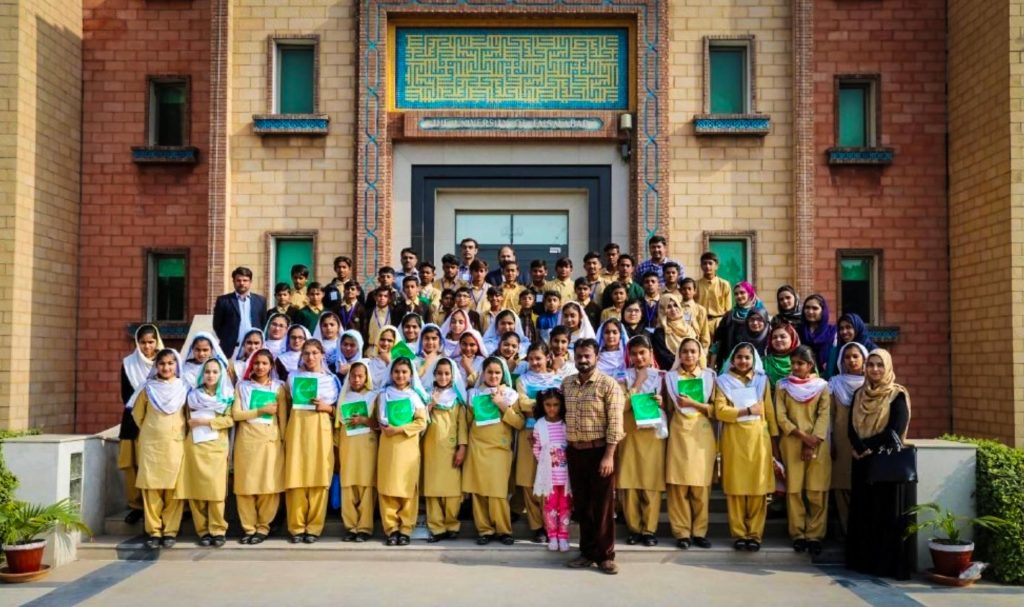
The Unsustainable Nature of Journalism
Hamza is responsible for Madinah Foundation’s impact and communication. He makes sure the right information, like details of Better Pakistan, gets to the students.
It’s a role Hamza continues to hold despite splitting his time between Faisalabad, and Vienna, where he is doing a PhD in Communication Sciences.
Hamza’s research focuses on how to make journalism more sustainable from a political, cultural, and financial aspect.
It’s an idea that has its roots in his bachelor’s in finance and business. Although that didn’t excite him, the news did.
“I was always interested in journalism. I just loved reading newspapers as a kid, but I never had the guts to study it, because I never felt that it would lead to a very positive financial future.”
This was prophetic. With news media shifting online, and technology making it “more efficient”, as Hamza says, “you don’t need that many editors, you do not need that many reporters.”
It’s a cutthroat, competitive business. Even so, Hamza retains the enthusiasm that led him to work as a journalist in Pakistan for a year. That was before he moved to England to study a master’s in media and communications at Warwick University, and then on to Vienna for his PhD.
He has always been excited by how journalism can be leveraged to influence socio-economic and environmental improvements.
Like any other skill, Hamza reassures us, journalism is one we can all learn. This makes us all potential influencers on the issues that we find important.
“Everything is interconnected with media,” our CityChanger exclaims. “We moved away from the industrial age towards the information age. Information, communication, these all play a huge role in every aspect of our lives.”
Cleaning Up the News
Influence can be misused, though.
Whilst a practicing reporter, Hamza saw first-hand the sway that organisations and institutions have over the media. He became jaded by the political and economic bias that crept in and could influence the tone of a story.
Developments in technology entrench this further.
Digital tools play a bigger part in how we create and consume the media these days. If anything, online news is easier to manipulate; anyone can write an article or post their thoughts and claim it as the truth. These biases are replicated and promoted further still by artificial intelligence.
We live in such an age where you really do not know what is real and what is fake. Especially now, you don’t know what is actually AI-generated or what’s real.
It can be difficult to know what to believe. “Within the past five years, there was so much fake news,” Hamza warns. “Only now over the last two years, do we see many fact-checking organisations come to light.”
With climate change denial, cries of conspiracy theories, purposeful misinterpretation, fake news, and the exploitation of misinformation as a means for political gain at the expense of sustainability policies, a lack of accountability can be dangerously misleading.
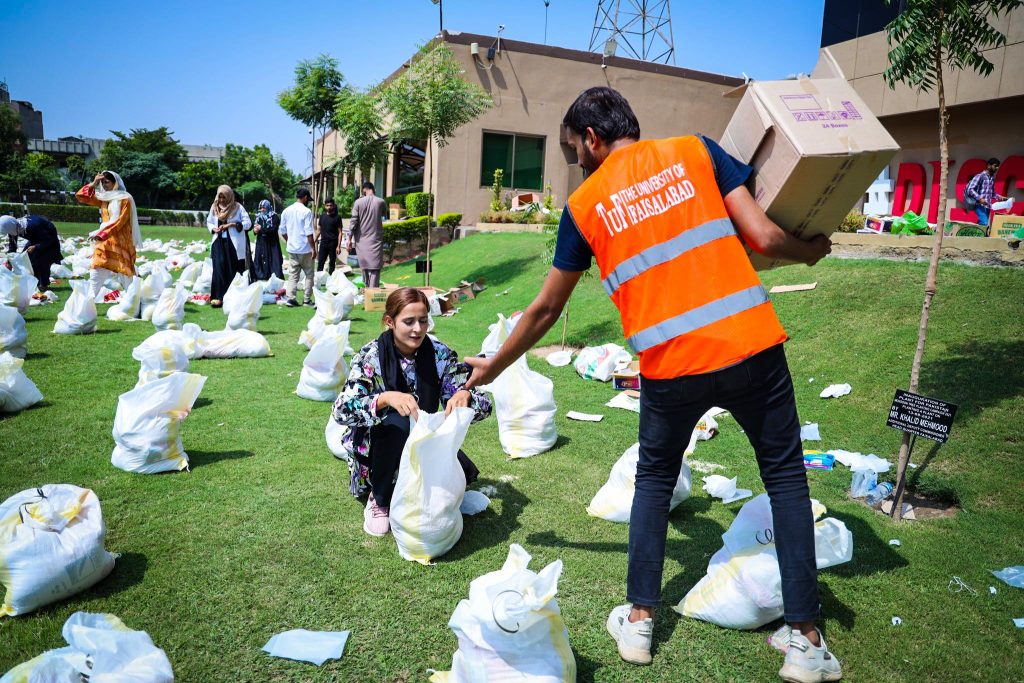
The Future of Journalism?
That’s why Hamza created Nine News.
It’s a digital content network that scans the Internet for news stories, strips out the bias, and automates the writing of easy-to-read articles using the facts.
With 70% of Pakistan’s population below 30 years of age, Hamza explains, digital advocacy is a powerful tool. That’s why Nine News presents content “in a more social media friendly manner”, appealing to digitally literate youth.
Information is important to being politically active.
On moving to Austria, Hamza found that the language barrier prevented him from being involved in his new community.
Undeterred, and fed up with having to translate every story line by line, Hamza is now working on a new platform, Mews Austria.
The premise is similar to the original, but with the added function of translating German-language news for migrants. After all, he knows what the power of fact can achieve if communicated effectively.
How to Channel the Right Energy
University of Faisalabad has committed to the UN Sustainable Development Goals, namely to support climate action and to generate affordable and clean energy. So, it was difficult for the board of governors to say no when Hamza gathered a group of students to propose a massive change for the campus.
“We thought, let’s change our energy, which is extremely expensive and bad for the climate, and move towards solar.”
This was no small ask. As an extensive and expensive infrastructure project, convincing the decision makers was a big challenge, our CityChangers admits.
It was a lesson in leveraging all the resources we have available.
Work on Reputation
Madinah Foundation oversees and supports the university. So, Hamza’s responsibility for impact and communication with the organisation put him in direct contact with the institution’s vice chancellor and board of governors.
They were a captive audience, but there was a chance that they would decline the project on the basis that the cost outweighed the benefits.
Hamza anticipated this and put together a robust proposal proving otherwise.
Spread the Costs
It came complete with a comprehensive roadmap for installing the solar panels and details of the economic advantages, as well as spreading the upfront investment.
The financial aspect is a big one.
“We laid out the cost over the next 20 to 30 years, what it’s going to improve in terms of impact for the university.”
Not only did they show that the initial investment prove saves money over the three decades, but also that the university would appear more attractive to “these organisations that rank you on how sustainable you are.” That’s good for reputation!
A survey proved the high level of support from the students, too.
As many as 20% of them live in Faisalabad’s hostels, Hamza estimates. So, “the majority of the students are in favour of this transition, because it also reduced their accommodation costs”.
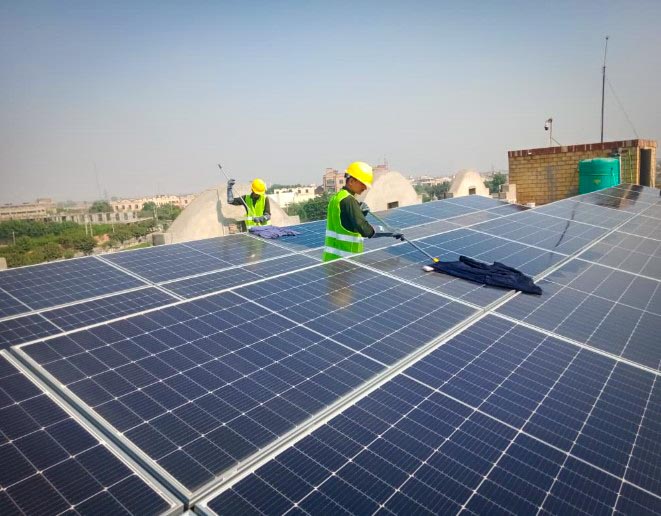
Continue the Noise
It worked. The university transitioned to solar energy in 2021. As Hamza calculated, it has “really, really reduced the cost to the university” and “the reliance on conventional energy resources”.
True to his word, it has also boosted the university’s reputation: “Many students started posting about it on social media.”
Students feel that they can “bring attention to many injustices through social media” and make a difference by communicating directly with decision-makers.
Their reports of the solar energy project have caught plenty of attention.
“This has inspired other universities to do the same. We know of three universities across the whole province that started a similar programme”.
Climate Modesty
Hamza credits this success largely to the mission-driven work of Madinah Foundation.
It’s fair to say that his position within the NGO gave him the means to work with the right actors. Equally, without his skills as a communicator, Madinah would not have reached so many recipients or with such powerful impact.
You never really know what change you make. One can only hope, and one can only keep working towards it, and hope that this works out in the long term for the future.
If Hamza’s story proves anything, it’s that education, collaboration, and personal motivation are each important to the sustainable transition, but they achieve more in the hands of CityChangers who can bring them together.

